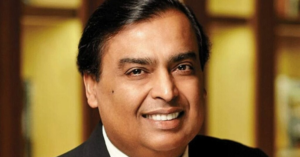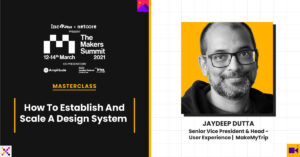Will Poole co-founded Unitus Ventures, a social impact investment venture fund based in Bengaluru and Seattle, in 2013, to support early-stage fintech, edtech, healthcare, and jobtech startups “with India scale and global emerging market potential”.
Unitus Ventures focuses on impact, and has clearly demarcated a set of themes where it can make that impact. The fund, which has invested in startups like Better Place, CueMath, and Masai, has a portfolio of 28 companies and looks for “entrepreneurs who can change society and yet make a profit”. In its second innings, the Rs 300 crore-plus Unitus Fund-II has invested in companies like Awign, Predible, and Utter. It aims to invest in close to 30 startups.
Will, whose LinkedIn profile lists “making money while making a difference and convincing others to do more of the same” is Co-founder and Managing Partner of Capria Ventures, which apart from Unitus Ventures also includes Capria, which invests in the largest global network of fund managers collaborating to deliver superior returns in emerging markets.
In a freewheeling chat with YS, Will speaks about what impact investment means to him, the pace of digital transformation in India, and sectors that will make an impact in the post-COVID world.
Will Poole
Edited excerpts from the interview:
YS (YS): A couple of years ago, we spoke about your portfolio of companies producing 12,800 jobs with a net impact of $70 million in revenues. What has been happening in the space of impact investment since then?
Will Poole (WP): Let me start with a backstory for context.
I’m on my third career. I was a serial entrepreneur; Microsoft acquired my ecommerce company in the mid-nineties. I rose through the ranks there but decided that I wanted to put my business skills to work in making money, like everybody else, but also serving society in a significant and scaled way.
One of the things that happens when you work at a large tech company is that you get hooked to scale.
I partnered with a couple of people in Bangalore and a friend here in Seattle, and started a venture firm to build and invest in entrepreneurs. The objective was to find scalable solutions to some of the problems that have not been addressed, particularly in India.
I had realised that if one has to scale, there’s nowhere better to go than India. Now, one of the earliest areas that we invested in was edtech, and that was way back in 2013, when we had just started.
Very few companies were investing in edtech but we invested in . What the company has achieved is remarkable – the transformation during a year since the lockdown. CueMath went from being an in-person education company to an online company during the pandemic. They have become a globally focused company in a couple of months, and edtech is the hottest segment to invest in right now.
YS: What are your thoughts on the digital transformation and innovation in India?
WP: The reason for growth and innovation is because of digital technology, the availability of low-cost mobile, and other factors. I think that the pace of innovation is not going to change in India, but I wear two hats.
One is very focused on India, along with my colleagues in Bangalore, but the other one helps me focus on other emerging markets through our company Capria. We focus on Latin America, Asia, and Africa. So, what I am saying is that this innovation is not just in India; this pace of rapid innovation is happening everywhere. It’s obviously at different speeds in different economies.
What bothers me is what has happened with jobs over the last 16 months; it’s tragic. However, the pandemic has done some good with things hurtling towards digital – this would have otherwise taken years.
But I’m an optimist. if you’re an entrepreneur, you have to be an optimist; actually, you must be a hopeless optimist.
YS: Where will this rapid digitisation help from a social context?
WP: Millions of children in rural India will lose six months to a year, maybe two years, of their education not just because of the lockdown. The damage of the pandemic will be severe.
I’m not comfortable with this thing called mass education. So a child may do what’s comfortable to and live with parents on the farm. So, I think there are two sides to the edtech story. A six or seven-year-old living at home with an agriculturist family may need a different edtech solution.
Moving on to jobs…digital solutions can help people either get their first job, a better job, help them change jobs, or gain skills within the job that they have. These are areas where technology can truly advance society while making money. This is what impact investing is about.
YS: What does impact in tech mean to you?
WP: I think in India and other places, impact investing is still a bit of an anathema. People are confused about whether it is here to make money or is it here to make a difference. I’ll be clear that our position is unequivocal: it has to start by being here to make money.
We do not think that there’s ever a concession made if you’re focused on making money. You can also make a difference and make money. Technologies will address the needs of a large population without access to services. Technology should not be just for the top layer of society.
India is a giant market for impact. It’s been proven time and time again our hypothesis was right, and services and technology should cater to the next billion in the country.
For me, impact investing is going a little bit ahead of the herd. It’s going to play in a market where others aren’t yet, but recognising that they will come there because if you are building real profitable opportunities that can scale, every investor’s going to be there sooner or later. That’s the way we look at it.
YS: Ecommerce in B2B and B2C is playing out in India. Where is that heading in terms of impact for rural regions?
WP: I think it’s a huge opportunity. But it takes a long time and will need a good bit of money to make it work.
But obviously, it’s going to work because the benefits of ecommerce were clear for the cities. It has worked for a section that has higher income. It’s just a matter of having somebody that’s got the right operational model, the ability to do the nitty-gritty work, which is necessary to get the product out to the field and all that. They have to figure out the returns model and the reverse logistics. The rural ecommerce model would be very different to what works in cities.
YS: Tell us about healthcare, one of the areas that interests you greatly.
WP: I think AI is hugely important and is going to transform everything over time. But at some level, AI applied to medical images is a bit of a commodity. The ability to spin up a machine learning algorithm and train it on 100,000 images is happening in academic labs every day, all around the world. It’s going to be a very fast-paced innovation and at some level that’s the easy part.
Questions like how do we get those images up to the cloud where AI can play a part with augmented tagged images working closely with a board-certified radiologist who can verify them quickly and add value as needed, and then get them back to the attending physician to make a diagnosis and take care of the patient. Think about how teleradiology servicing can change in India. It can help doctors with COVID detection.
Look at the impact rural areas will see with telemedicine and teleradiology becoming popular.
YS: Do you think the government should define AI or should leave it to people?
WP: I think the only thing the government should do is to find standards around privacy. The idea of board-certified AI, that’s very real. If you want to become a radiologist, you have to study. Similarly, there is no reason why we should not certify AI for the work it can do for radiologists. This is going to happen soon.
YS: What are your thoughts on agritech?
WP: We’ve started to dive more into some such deals, and came very close to finalising a couple. We are excited about the space and will invest in several agritech companies within the next year or two.
YS: How does one value employees in the era of technology?
WP: We should not treat employees as a commodity that can be bought or sold. The pandemic has taught us several lessons and I see the impact it is making on people. We have invested in a company that helps blue-collar workers find jobs and aims to enhance their lives with access to insurance.









